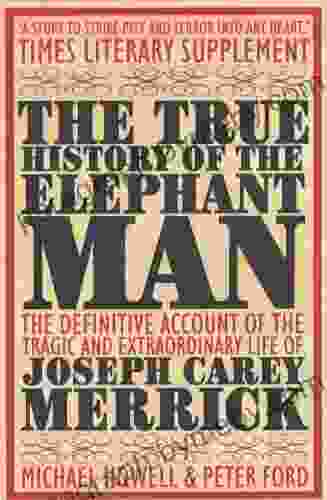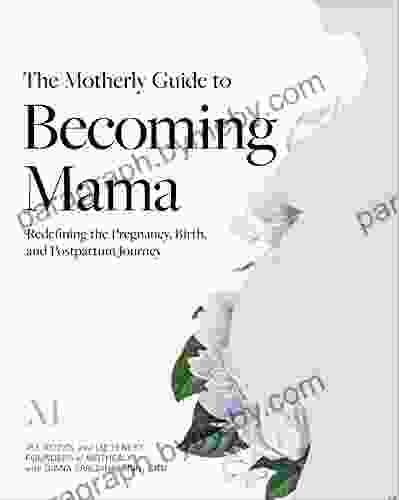Unveiling the Cultural Divide: Exploring the Contrasts Between British and Danish Business Practices

" />
Navigating the intricacies of international business requires a deep understanding of the cultural nuances that shape each unique business landscape. The United Kingdom and Denmark, two countries with distinct histories, values, and business practices, offer a compelling case study in cultural differences. By exploring the contrasting approaches to communication, negotiation, decision-making, and team dynamics, we can gain valuable insights into how to bridge the divide and foster successful collaborations between these two business worlds.
4.8 out of 5
| Language | : | English |
| File size | : | 2787 KB |
| Text-to-Speech | : | Enabled |
| Screen Reader | : | Supported |
| Enhanced typesetting | : | Enabled |
| Word Wise | : | Enabled |
| Print length | : | 122 pages |
| Lending | : | Enabled |
| X-Ray for textbooks | : | Enabled |
Communication Styles
Communication is the cornerstone of effective business relationships. In the United Kingdom, a direct and assertive communication style is prevalent, with a focus on clarity and brevity. Danes, on the other hand, tend to adopt a more indirect and consensual approach, emphasizing politeness and seeking input from all parties involved.
- British: Direct, assertive, clear, and brief
- Danish: Indirect, consensual, polite, and inclusive
Understanding these contrasting styles is crucial to avoid miscommunications and foster productive dialogue. For example, a British executive's direct request for a decision may be perceived as confrontational by a Danish counterpart, while a Danish manager's emphasis on consensus-building may be seen as indecisive by a British colleague.
Negotiating Strategies
Negotiations are an integral part of business transactions. British negotiators typically employ a competitive approach, seeking to gain the upper hand and secure the best possible deal. Danish negotiators, in contrast, often adopt a more cooperative style, prioritizing long-term relationships and finding mutually beneficial solutions.
- British: Competitive, adversarial, focused on winning
- Danish: Cooperative, collaborative, focused on building relationships
Recognizing these differences is essential for successful negotiations. British negotiators may need to temper their competitive instincts to avoid alienating Danish counterparts, while Danish negotiators may need to be more assertive to ensure their interests are adequately represented.
Decision-Making Processes
Decision-making processes also vary across cultures. In the United Kingdom, decisions are often made by a single individual, with a centralized leadership structure. In Denmark, decision-making is more decentralized and collaborative, with input sought from a wider group of stakeholders.
- British: Centralized, hierarchical, individual decision-making
- Danish: Decentralized, collaborative, consensus-based decision-making
Respecting these different approaches is crucial for effective decision-making. British managers should be open to involving Danish colleagues in decision-making processes, while Danish managers should recognize the authority of British leaders.
Team Dynamics
Team dynamics are another key area of cultural difference. British teams tend to be more individualistic, with a focus on personal achievement and recognition. Danish teams, in contrast, are more collectivist, with an emphasis on teamwork, collaboration, and shared success.
- British: Individualistic, competitive, focused on personal achievement
- Danish: Collectivist, cooperative, focused on team success
Understanding these distinctions is essential for fostering effective team collaboration. British managers should recognize the importance of team success for Danish colleagues, while Danish managers should encourage individual initiative and recognition within their British teams.
The differences between British and Danish business cultures are multifaceted and profound. By understanding and appreciating these contrasts, businesses can develop effective strategies for bridging the divide and fostering successful collaborations across these two distinct business worlds. By embracing cultural sensitivity, adapting communication styles, adopting flexible negotiating approaches, respecting decision-making processes, and fostering inclusive team dynamics, businesses can unlock the full potential of cross-cultural collaboration and achieve mutual success.
Tips for Successful Cross-Cultural Collaboration
- Educate yourself about the cultural differences between the two countries.
- Be patient and respectful in your interactions.
- Avoid making assumptions or stereotypes.
- Be willing to adapt your communication style and negotiating strategies.
- Foster a collaborative and inclusive team environment.
With a deep understanding of cultural differences and a commitment to cross-cultural collaboration, businesses can navigate the complexities of international business and achieve lasting success.
4.8 out of 5
| Language | : | English |
| File size | : | 2787 KB |
| Text-to-Speech | : | Enabled |
| Screen Reader | : | Supported |
| Enhanced typesetting | : | Enabled |
| Word Wise | : | Enabled |
| Print length | : | 122 pages |
| Lending | : | Enabled |
| X-Ray for textbooks | : | Enabled |
Do you want to contribute by writing guest posts on this blog?
Please contact us and send us a resume of previous articles that you have written.
 Book
Book Novel
Novel Page
Page Chapter
Chapter Text
Text Story
Story Genre
Genre Reader
Reader Library
Library Paperback
Paperback E-book
E-book Magazine
Magazine Newspaper
Newspaper Paragraph
Paragraph Sentence
Sentence Bookmark
Bookmark Shelf
Shelf Glossary
Glossary Bibliography
Bibliography Foreword
Foreword Preface
Preface Synopsis
Synopsis Annotation
Annotation Footnote
Footnote Manuscript
Manuscript Scroll
Scroll Codex
Codex Tome
Tome Bestseller
Bestseller Classics
Classics Library card
Library card Narrative
Narrative Biography
Biography Autobiography
Autobiography Memoir
Memoir Reference
Reference Encyclopedia
Encyclopedia Laura Hillman
Laura Hillman Marianne Richmond
Marianne Richmond Robert Irvine
Robert Irvine Jessa Stone
Jessa Stone Jeff Hastings
Jeff Hastings Laura Furman
Laura Furman Jenna Lettice
Jenna Lettice Jean Vives
Jean Vives Jeffrey Hoffstein
Jeffrey Hoffstein Jeff Biggers
Jeff Biggers Jean Stein
Jean Stein Jeff Mach
Jeff Mach Michael J Fox
Michael J Fox Jenny Mcgill
Jenny Mcgill Renee Pawlish
Renee Pawlish Jim Allen
Jim Allen Michael Hausenblas
Michael Hausenblas Jennifer Lauck
Jennifer Lauck Jen Hatmaker
Jen Hatmaker Jeanne Theoharis
Jeanne Theoharis
Light bulbAdvertise smarter! Our strategic ad space ensures maximum exposure. Reserve your spot today!

 Gerald ParkerUnleash the Splendor of Antiquity: Dive into the Costumes of the Greeks and...
Gerald ParkerUnleash the Splendor of Antiquity: Dive into the Costumes of the Greeks and... Albert CamusFollow ·16k
Albert CamusFollow ·16k Xavier BellFollow ·18.3k
Xavier BellFollow ·18.3k Langston HughesFollow ·19k
Langston HughesFollow ·19k Hugh BellFollow ·15.5k
Hugh BellFollow ·15.5k Natsume SōsekiFollow ·10.4k
Natsume SōsekiFollow ·10.4k Jeffery BellFollow ·18k
Jeffery BellFollow ·18k Justin BellFollow ·16.9k
Justin BellFollow ·16.9k Deion SimmonsFollow ·8.9k
Deion SimmonsFollow ·8.9k

 Jeremy Mitchell
Jeremy MitchellUnveiling the Truth: The Captivating Saga of The Elephant...
Embark on a poignant journey through the...

 Marvin Hayes
Marvin HayesThe Day The World Came To Town: A Heartwarming Tale of a...
In the quaint...

 Hugh Bell
Hugh BellExplore the Avian Treasures of Wisconsin: A Review of...
Unveiling the Secrets of...
4.8 out of 5
| Language | : | English |
| File size | : | 2787 KB |
| Text-to-Speech | : | Enabled |
| Screen Reader | : | Supported |
| Enhanced typesetting | : | Enabled |
| Word Wise | : | Enabled |
| Print length | : | 122 pages |
| Lending | : | Enabled |
| X-Ray for textbooks | : | Enabled |
















